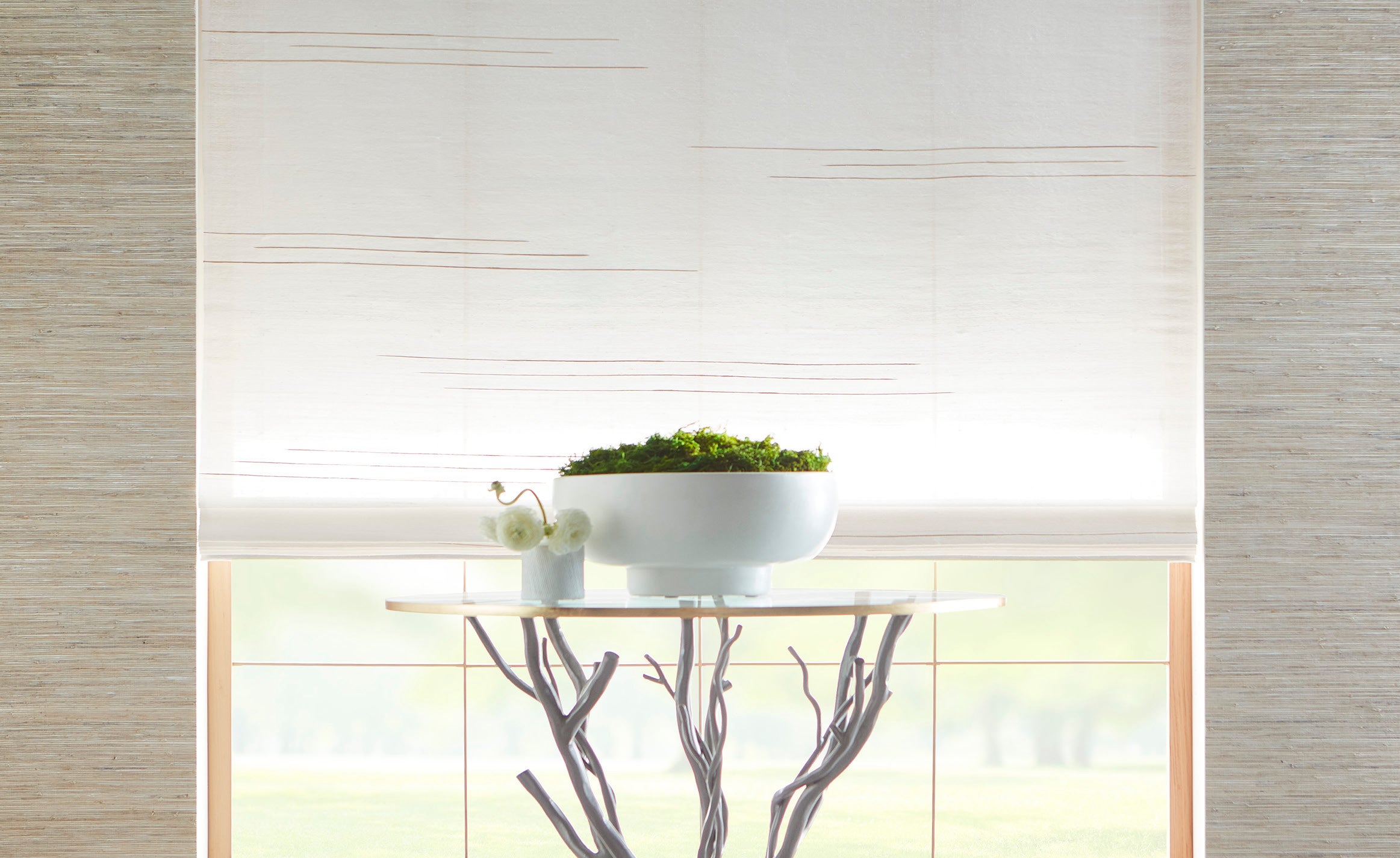From seed to finished shade, Hartmann&Forbes is committed to crafting bespoke, all-natural window- and wallcoverings for discerning designers who prioritize eco-conscious materials and exquisite artistry above all else. Based in Tualatin, Oregon, the to-the-trade company creates its textiles from an array of organic fibers that it harvests, then weaves on traditional handlooms, adhering to sustainable practices at every stage of the process. The resulting heirloom-quality pieces have earned the brand an impeccable reputation as a resource for innovative designs, as well as recognition as one of Oregon Business magazine’s 100 Best Green Workplaces for the past 11 years.
Distinguished by its textural nuances, earthy palettes and nature-inspired patterns, Hartmann&Forbes’s designs reflect the authenticity of the past while meeting modern needs. From arrowroot to water lily, artisans harvest and weave renewable, plant-based fibers into intricate fabrications of warps and wefts that embrace tradition and challenge boundaries in ways only individual handiwork can. This boutique, anti-assembly-line approach allows for a level of customization that’s too often a rarity in today’s world. Informing every aspect of the practice is a dedication to environmental stewardship and a profound appreciation for the planet. On the occasion of Hartmann&Forbes’s 25th anniversary, founder and chief creative officer Michael Jones reflects on the company’s holistic approach to business and belief that a sense of sanctuary and well-being is a necessary impact of home goods.
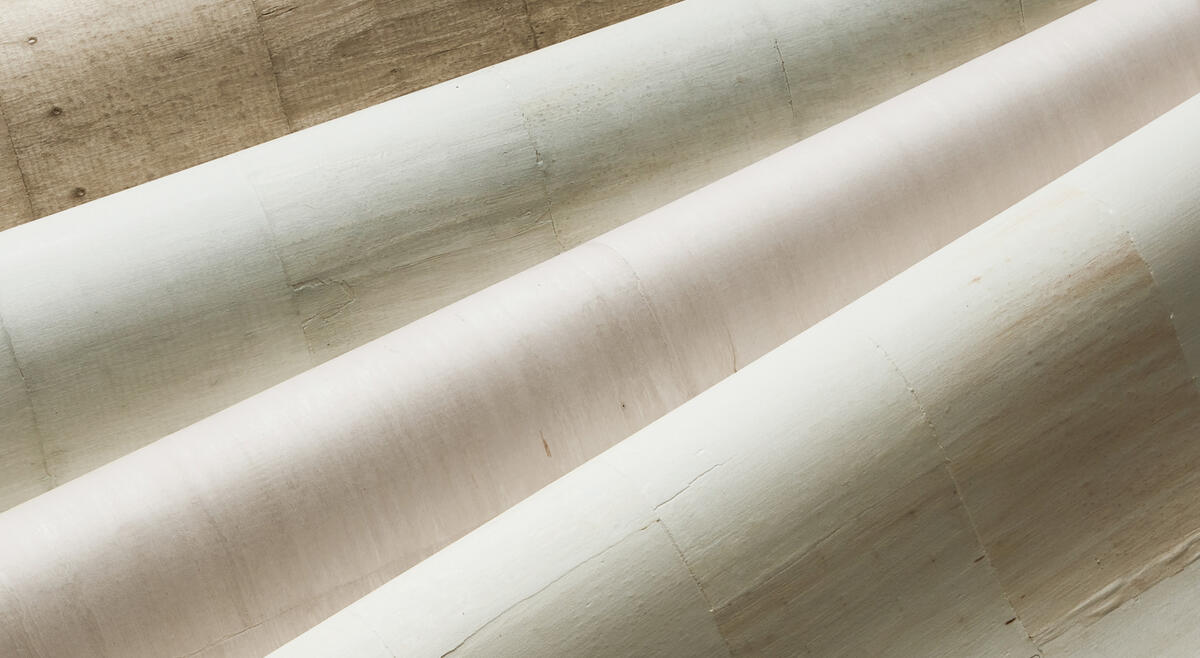
Congratulations on your 25th anniversary! Looking back, looking forward, what’s on your mind on this momentous occasion?
I’m quite hopeful, honestly. If you’d asked me 15 years ago, I probably would have said, “Technology is moving so rapidly, how are we going to adapt” [as] a company that provides hand-made, hand-woven, high-touch products?
All of our fabrics start as a seed. Jute and linen. Arrowroot has a beautiful sheen. We use the husks of bamboo—after they fall off during the growing process, we gather them, then strip and tie them for fibers. We’re doing more and more with banana fiber lately. Cork, hemp, palm, ramie. A lot of different river reeds and seagrasses. Vetiver is interesting because it’s got a natural minty fragrance that carries over to the textile, making a room smell like a spa.
We cultivate our own harvests, sort the fibers by thickness, bundle and sun-bleach them, weave up to 15 feet wide by hand to quarter-inch tolerances, and then translate that into a window shade that can interact with a smart home system or an iPhone. We take this traditional product and apply it to modern, sophisticated purposes.
Maintaining craftsmanship while adapting to technology must be a balancing act.
If you love working with your hands, you can find a home [working] at Hartmann&Forbes forever. We’re a sort of human development organization. People are the only reason we exist. The design and craftsmanship is amazing and wonderful—but we’ve always been a people-first organization. We respect each individual, and help them discover their unique gifts and how they can contribute to the whole.
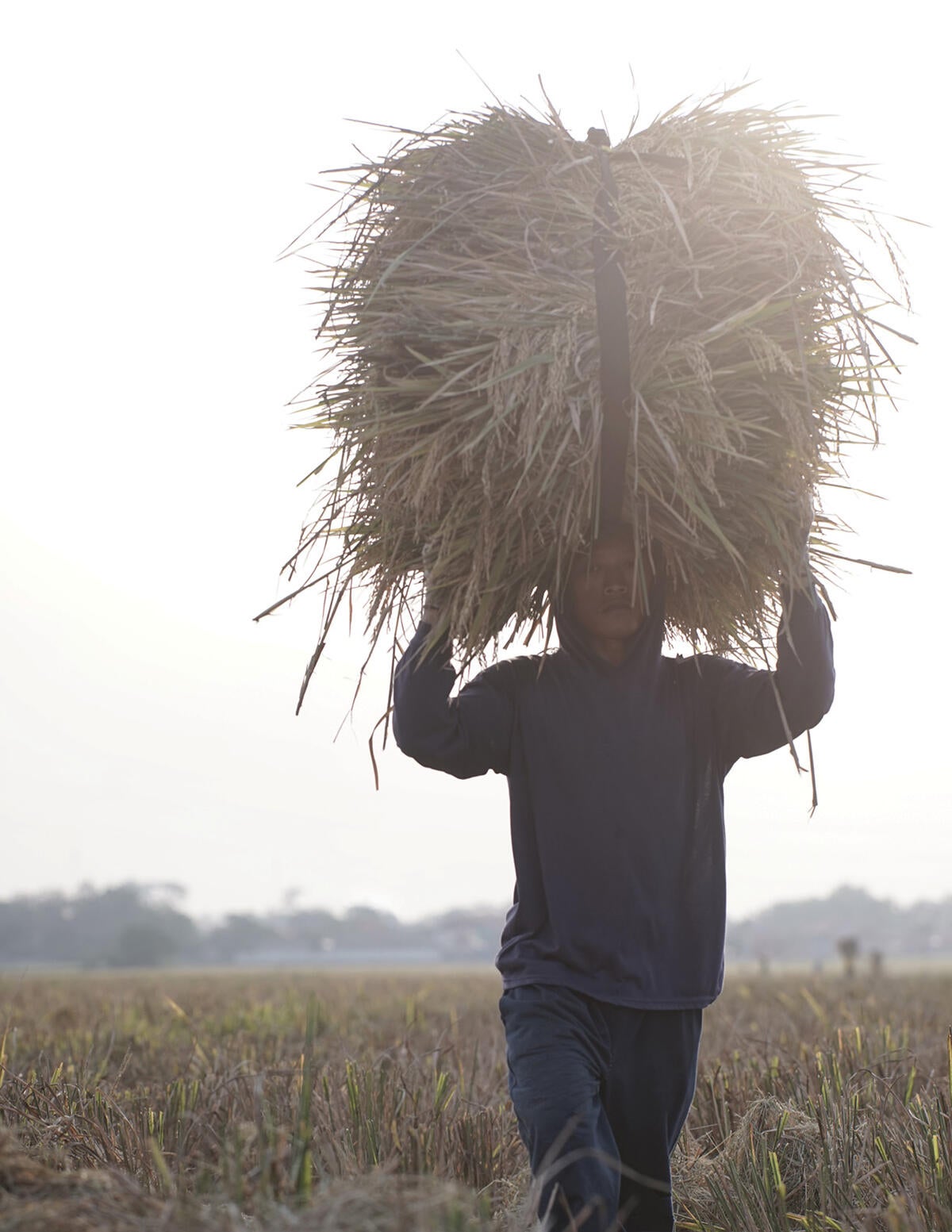
You’ve found a way that’s equitable across the board, both in compensating your artisans and selling your products?
We control the whole process, from farming to weaving to fabricating, which leads back to design. We offer almost unlimited customization. If a designer has an idea, we can help them bring it to life.
Since everything is custom-woven, there’s also no waste. We’re not a company that has a 100,000-square-foot factory full of fabric where 30 percent is going to end up obsolete and thrown in a landfill. We don’t have stock material; we custom-make it. That’s incredibly unique as well. We have several exclusive locations overseas where we do all our farming and weaving. All our fabrication is done here in Oregon.
You’re a native of Oregon yourself. Is there something in the water that makes the state the perfect place to support your business philosophy?
For sure. I think the Pacific Northwest is one of the most beautiful places in the world. And what’s interesting is, we’re starting to see the issues we’ve cared about for a very long time become more important [to society at large]. The environment, obviously. And there’s a connection happening with wellness, an awareness that what we do ultimately impacts not just planetary health, but human health.
We want to play at the apex where human and planetary health come together. We want to deliver a sanctuary experience, because we believe that in today’s hyperconnected world, people need to be restored. My office has so many plants that it’s a jungle; you’d wonder how I get any work done. But it’s because I feel better in nature. I’m out walking or hiking, forest bathing, five or six days a week. It’s where I get restored.
At Hartmann&Forbes, we focus on not just the biophilic components of having nature in your home, but also making sure people can feel at peace with their decisions. We do all the vetting for you so that you can trust that whatever you buy from us is going to be well-made. It’s going to be fair-trade. It’s going to be nontoxic. It’s going to be beautiful. We want to be the most trusted brand in our marketplace, and trust is built by being honest. That’s why it’s been so important to remain an independent company. Being independent allows us the freedom to stick to our standards.
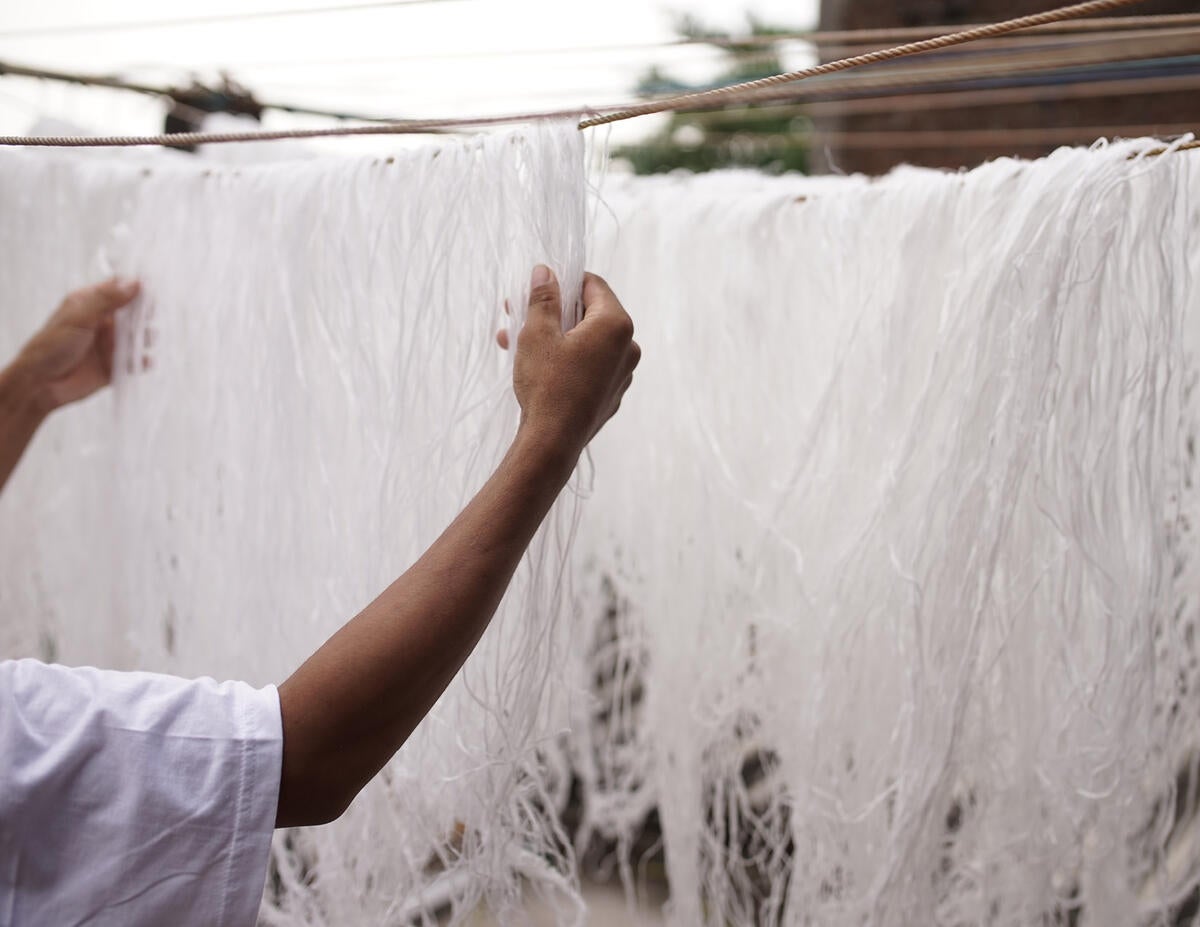
So it’s not just the positive effect of being surrounded by sustainable products, it’s their life before and after. You’re thinking of it holistically.
Absolutely. And it’s relational over transactional, asking from the very beginning: Can it be organically farmed? What are we using in our dyes? What’s the carbon footprint? Lots of brands preach it. Hartmann&Forbes just does it, each and every day. It’s why we’ve been ranked as one of the top green companies in Oregon for over a decade.
At the same time, you are running a business. What are the sticking points you’re still trying to reconcile as you anticipate the next 25 years—
Or the next three weeks! Every challenge is an opportunity to grow. Anytime you create a constraint, it allows for creativity. At the start of the pandemic, we didn’t know if or for how long we might have to be closed. We had just remodeled and doubled the size of our facilities. We moved in three days. It was hard work, but our team rallied, and that ended up putting us in a position where we could sustain the growth we experienced during the pandemic, which nobody could have forecasted.
We use nature as our North Star. We strive for that same resiliency. We probably don’t gauge success according to classic business measurements. Internally, we say: “We want to be great, not great big.” We also emphasize transparency. When we have struggles, we talk to our clients about it, saying, “Here’s the issue we’re dealing with, here’s how it might impact you, and here’s what we’re doing to overcome it.”
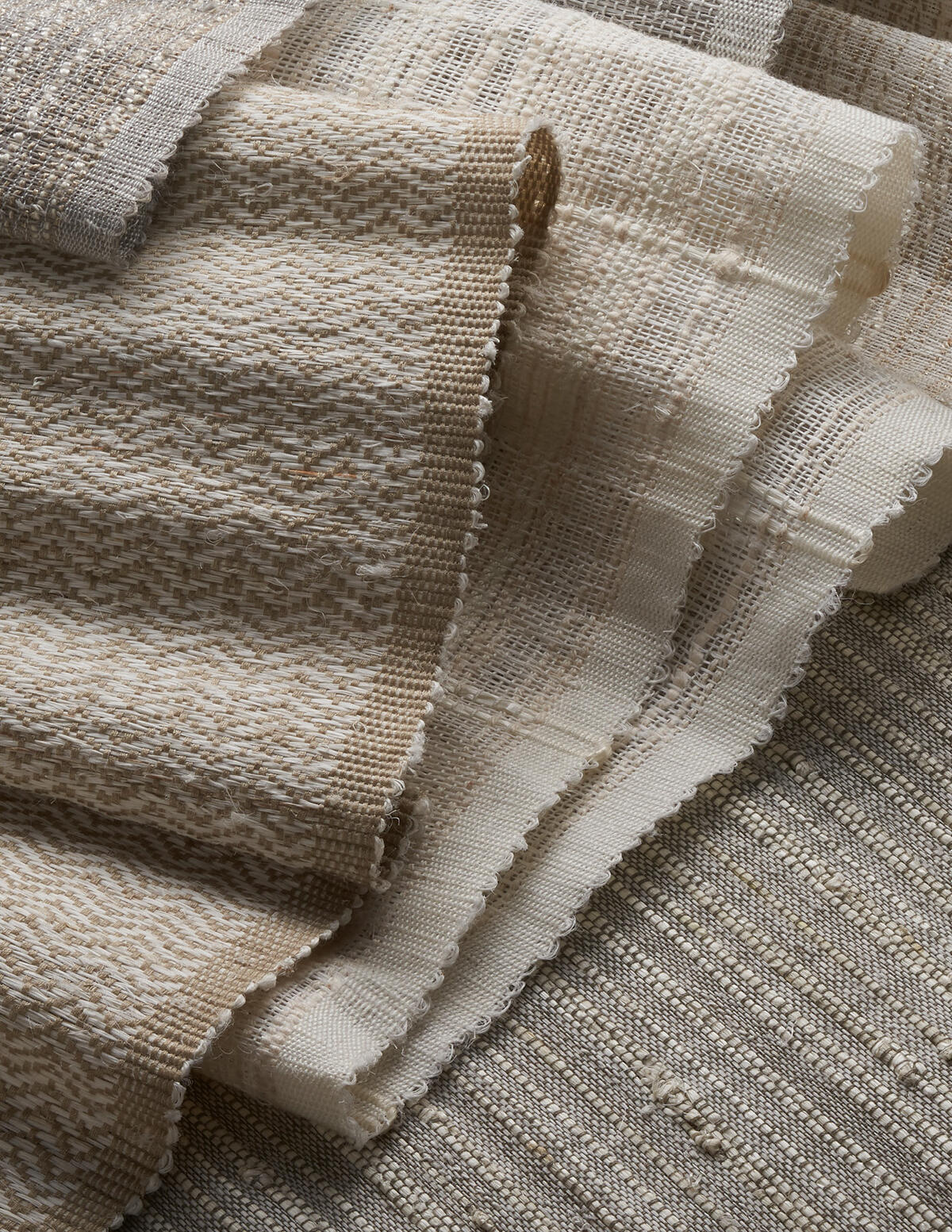
What kind of issues come up?
From the design side, we’ve had situations where we’re trying to make a natural-colored fiber white because that’s what the designer spec’d. Well, some of those fibers don’t like to stay white; they want to return to their natural shade.
Our business has grown a lot, but we do not jeopardize our quality to produce things faster. We’ve had to navigate expectations, telling clients: “You will get the best product we can possibly make, but we’re not going to take shortcuts. We can’t rush this process.” Everything we make looks so impeccable once it’s done that people don’t understand how much work it takes. We try to have empathy, but educate them.
Speaking of education, you have an MBA and a background in finance, and now you are chief creative officer of a luxury furnishings company. How did those two strands come together?
It’s one of those mysteries. Working in the financial world was good training for what I didn’t want. I was good at it, but I just wasn’t happy. On Sundays I’d start thinking, “Oh man, I’ve got to go into the office tomorrow.” Finance was very performance-oriented and shame-based. You were never good enough. That was the root of why I wanted to build something myself, slowly and consistently and in the right way. I’ll take grace over performance any day.
Even with my MBA, I learned a lot more from building and running a business. In graduate school, they never even taught us how to hire an employee. In design school, you study a lot of theory, but it’s only when you start working on projects that you really learn how to design. I call myself a design entrepreneur, because while I oversee all creative, we have a lot of very skilled, talented designers who work here, day in and day out. They’re the real creatives. I’m just the one making sure it all comes together and makes sense.
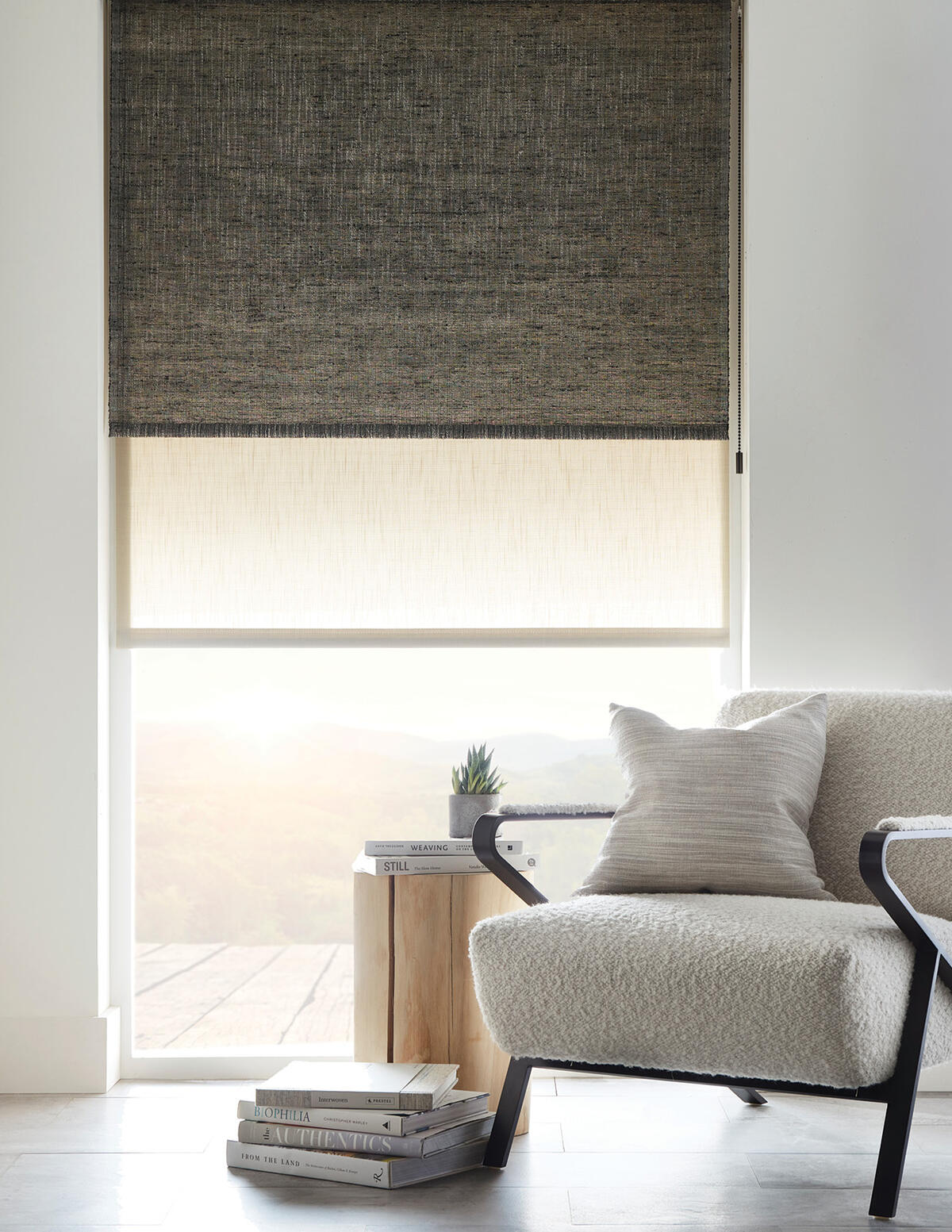
Based on your “slow business” philosophy, I can’t help but be curious: Did you grow up in any particular religious tradition? Did you have a spiritual epiphany after business school?
It’s the way I’m made, I suppose. I’ve always wanted to create a culture that was nonjudgmental and open to everybody; to see the human first, because we’re all works in progress. The core values of most religions are very similar. It doesn’t matter if somebody is following Hinduism or Buddhism or Jesus: Whatever their foundational beliefs might be, those change too. People evolve as they mature and experience suffering and challenges.
There’s not a lot that’ll get you fired at Hartmann&Forbes except a failure of integrity. You lie, you cheat—that, we won’t put up with. But you mess up on a project, you miss a date, no problem. We pick you up, we help you out. We jump on your team and roll up our sleeves.
Has your clientele’s appreciation for what Hartmann&Forbes offers evolved over the years too?
People are recognizing that there is a downstream impact to their behavior. I hope that the Hartmann brand can be part of the solution based on the ethical way we make our products. There truly isn’t a sustainable company. There are only responsible companies. We aim to be responsible. Yes, we have a footprint. Everybody does. Ours is cleaner than most.
For the next 25 years, I hope we can continue to be a leader in sustainable practices while making unique products for designers. Sales and profits and metrics and all that stuff is important, but it dehumanizes the entire process. There’s this movement now toward conscious capitalism, with targets that take not just growth but impacts into account. At Hartmann&Forbes, that’s our mission.
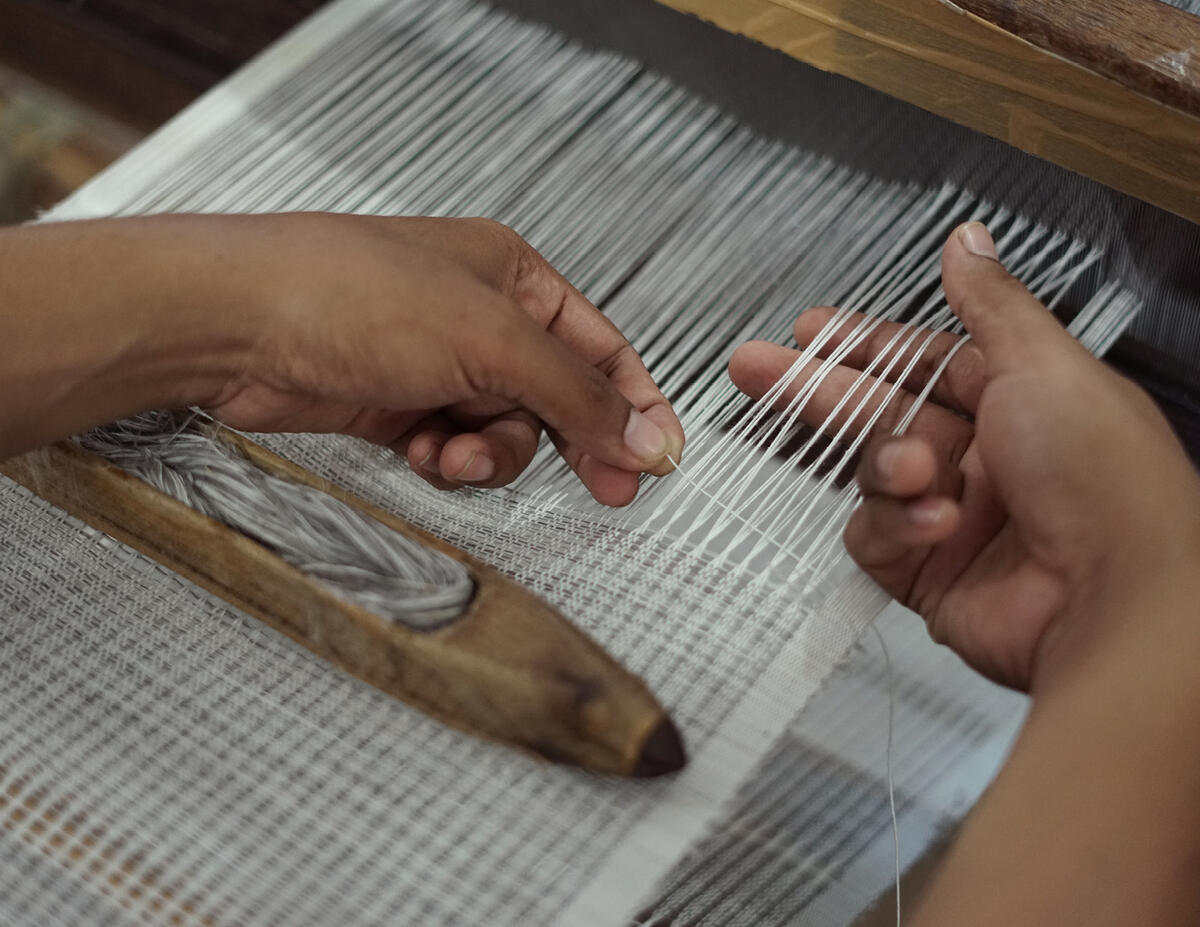
This story is a paid promotion and was created in partnership with Hartmann&Forbes.
Homepage image: “We want to be great, not great big,” says founder and chief creative officer Michael Jones, encapsulating the philosophy that informs Oregon-based Hartmann&Forbes’s mission to create from seed, and by hand, sustainable, environmentally friendly window- and wallcoverings | Courtesy of Hartmann&Forbes
















